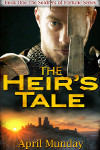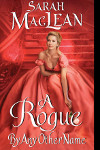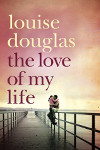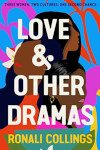Edith Wharton – The Age Of Innocence
Posted 23rd February 2018
Category: Reviews Genres: 1920s, Angst, Domestic, Drama, Social
3 Comments

Everything is awesome (caveat: when you’re part of the team)1.
Publisher: N/A
Pages: N/A
Type: Fiction
Age: Adult
ISBN: (Vintage’s is 978-0-099-51128-1)
First Published: 1920
Date Reviewed: 23rd February 2018
Rating: 5/5
1870s New York and young Newland Archer is excited at the prospect of marrying May Welland, looking forward to making their engagement official. But as he watches the opera in his club box, he spies a newcomer with his fiancée’s family; May’s cousin Countess Ellen Olenska has separated from her European husband and has come to stay in America. Ellen is rather different to the rest, her European ways at odds with New York society and everyone hopes she’ll reunite with her husband… everyone except Newland who is strangely attracted to her.
The Age Of Innocence is a marvellous novel with a highly ironic title. Set at a time of change, it looks at the way a society that does not favour the arts, or anything even one step away from their etiquette and mores, responds when they are confronted with a person who is slightly associated with it.
Wharton speaks of a society she was a member of and uses Newland to examine it as well. There is a lot of characterisation in the book but most of it is by rights and by design set aside for Newland. As the main character (the book is written in the third person) Wharton spends most of her time in his head. Her relative lack of characterisation of the other characters, barring Madame Olenska, is almost a theme in itself, with the society members effectively rendered as stereotypes as befitting Newland’s opinions of them, which, let’s just say, aren’t always correct (and can be frustrating at times). It’s an interesting sort of character-driven novel – there’s actually more plot than characterisation aside from Newland yet it remains character-driven.
In many ways everyone is a device for Wharton but none more so than the unsuspecting Newland who is used by Wharton to look at the perceived lack of female agency in society, as well as his own thoughts as to teaching his wife what he deems appropriate for her to know.
His own exclamation: “Women should be free – as free as we are,” struck to the root of a problem that it was agreed in his world to regard as non-existent. “Nice” women, however wronged, would never claim the kind of freedom he meant, and generous-minded men like himself were therefore – in the heat of arguement – the more chivalrously ready to concede it to them.
The young man was sincerely but placidly in love. He delighted in the radiant good looks of his bethrothed, in her health, her horsemanship, her grace and quickness at games, and the shy interest in books and ideas that she was beginning to develop under his guidence. (She had advanced far enough to join him in ridiculing the Idyls of the King, but not to feel the beauty of Ulysses and the Lotus Eaters.)… But when he had gone the brief round of her he returned discouraged by the thought that all this frankness and innocence were only an artificial product.
So the story is very clever. It’s a man’s world – is it? (You might expect a woman writer in those years to question that – Wharton and Kate Chopin would have got on well – but Wharton’s craftiness will have you wondering what’s on the next page constantly and she is a master of red herrings, nay, pre red herrings.) The author gives a lot of time to Ellen Olenska, ensuring that the woman shines in characterisation away from her role as Newland’s social interest, and allows a second interpretation to take hold in Ellen’s story. The execution of the story is flawless and the ending an absolute triumph.
At once a simple story with little embellishment, The Age Of Innocence is well worth the fairly short investment of time it requires, both for enjoyment and because it’s a worthy classic. You will not regret reading this book.
1 The main line of The Lego Movie theme song seemed too appropriate not to use, however irrelevant it is otherwise.
Related Books
None yet
April Munday – The Heir’s Tale
Posted 26th January 2018
Category: Reviews Genres: 2010s, Angst, Domestic, Historical, Romance, Spiritual
Comments Off on April Munday – The Heir’s Tale

More to learn after the war.
Publisher: (self-published)
Pages: 150
Type: Fiction
Age: Adult
ISBN: B075KQ3HX4
First Published: 29th September 2017
Date Reviewed: 25th January 2018
Rating: 3/5
Ancelin returns home from the war he fought alongside his brothers. His betrothed, Emma, has been waiting a long time and is happy to see him, but so is his sister-in-law Alice, whose husband is now dead. Ancelin has always loved Alice and her sudden interest in him causes him to rethink his betrothal.
The Heir’s Tale is a coming-of-age romance set in the medieval period, and the start of a series of books about a set of brothers.
The research in this book is of a very high standard. Munday strikes the right balance of detailing and holding back to the extent that there are a good few times when it’s easy to get lost in the history. The amount of research is evident but only on consideration, leading to the best of reading experiences where you can relax into it without any worries of the author including too much or any errors. The writing backs it up; it’s solid. There are no anachronisms and the text reads smoothly.
It’s apt to talk about Ancelin’s growing maturity in terms of relationships. The character continually darts back and forth – one minute he knows he likes Emma, the next he’s tempted by his sister-in-law – and it’s a long-term thing, the main conflict in the book. On the surface, Ancelin is a frustrating person to read about however upon reflection it’s quite realistic – it’s all too easy to ascribe modern notions to this young-twenties man and think that he should be better, but when put in the context of his lack of experience and the sudden turnabout of his romantic situation, wherein he has loved Alice for years without her paying any attention and now she’s turned full circle, it makes a lot of sense. The continuation also has another role – it allows Munday to look at the character further.
Here the best example is probably in the character’s gender. Rather than look at Ancelin with an eye to the sort of romance that’s often included – where the male character will act in ways that’s romanticised and dreamed about but not often true to reality – Munday unashamedly puts sex before romance, so that there is more physical action (aside from sex itself which, true to history, doesn’t happen during the betrothal) in places where you might have been expecting roses. This said, there are also roses.
The characters as a whole are good – Emma is very patient with Ancelin but is by no means meek, in fact she’s the strongest character. Ancelin’s brothers get a lot of look in to set up the other books but it doesn’t actively detract; his father is a fair secondary character. Alice however does present a problem.
Alice has very good reason for suddenly showing romantic interest in the brother-in-law she’d previously not spent any thought on – she’s a widow in the medieval world and about to be sent off to a convent against her wishes. It’s obviously rather wretched that she’s trying to break up a prior betrothal, but she doesn’t have many options and as caring as her father-in-law is, society rules will go on ahead.
Where the issue lies is in the actions, the way Alice goes about trying to get Ancelin. You know from the moment Ancelin arrives home from war that Alice is the villain and she’s quite cardboard cut-out. In itself she is just one character but as this becomes part of the conflict of the book, the continuation makes it difficult. It comes to a head towards the end, where it’s obvious to the reader what’s happening but the characters don’t put two and two together. It means it’s a bit too angsty.
There is a lot to like about The Heir’s Tale but it can be overshadowed – the scenes in which Alice is absent, and there are many, are good and show Munday’s work well.
I received this book for review. The author is a friend.
Related Books
None yet
Sarah MacLean – A Rogue By Any Other Name
Posted 15th January 2018
Category: Reviews Genres: 2010s, Angst, Domestic, Historical, Romance, Social
Comments Off on Sarah MacLean – A Rogue By Any Other Name

Or name(s) – he has two already.
Publisher: Avon (HarperCollins)
Pages: 386
Type: Fiction
Age: Adult
ISBN: 978-0-062-06852-1
First Published: 2012
Date Reviewed: 15th January 2016
Rating: 2.5/5
Michael, Lord Bourne, has been gone for a decade; he left after his guardian, Langford, lured him into gambling away his land and fortune. Michael’s childhood friend, Penelope, is swiftly aging away from eligibility in the marriage market; her father adds to her dowry Bourne’s old lands, which the family have since gained. Now part owner in a casino, Michael is a very different man, but he remains determined to get back his heritage. And if marrying Penelope is the way to do it then so be it.
A Rogue By Any Other Name is a book that begins very well. The set up works; the characterisation is good, the use of a casino different, the writing strong – everything holds a lot of promise. Penelope and Michael are great characters – Penelope’s wanting to have a different, more interesting, life than that which is usual means she’s adventurous and generally not afraid to say what she thinks and whilst Michael has changed a great deal since she knew him, the way they interact indicates a good book ahead.
At this stage the romantic element of the book is easy to read and enjoyable, and the inclusion of letters the younger Penelope sent to Michael is a nice touch. In terms of relationship content, it quickly becomes apparent that Michael will be taking the lead but it’s of a type that is supposed to be alluring and will be to some readers and just not alluring but likely readable for others. (Mostly – I should point out that there are a couple of things that could be called either way depending on personal preferences.)
However as the book continues, the promise of the beginning first flies out of the window, then comes back to not only shut it but lock it several times over. The story and development is ever more manipulated, the angst overdone to the point of becoming boring. The characters continue to believe things can never be good between them, which works whilst they are having problems but as the relationship takes a turn for the better – as you knew it would because this is a romance – still this ‘it won’t work’ carries on. It’s a constant refrain from both even when they’re in each others arms and giddy with love, an obvious device to keep the book going.
Change too does Michael’s nature – he becomes domineering to the extent you might wonder whether Christian Grey was the inspiration in terms of control, the problems here being similar in their effect, if not their content (though there are some minor similarities), to E L James’ series.
And the writing takes a turn. Anachronisms, historical errors, and the constant use of repetitive thoughts.
Had the angst been curtailed and literary devices limited, A Rogue By Any Other Name may have kept its promise, but by the end of the book, when the love is fully established and known by both, and yet the angst is still going on, you’ll be wondering if another name might indeed have made a difference.
Related Books
None yet
Louise Douglas – The Love Of My Life
Posted 8th November 2017
Category: Reviews Genres: 2010s, Angst, Domestic, Romance, Social, Spiritual
Comments Off on Louise Douglas – The Love Of My Life

The tree makes the apple fall… and calls itself lighter for it.
Publisher: Pan Macmillan
Pages: 328
Type: Fiction
Age: Adult
ISBN: 978-0-330-45358-5
First Published: January 2008
Date Reviewed: 8th November 2017
Rating: 4/5
After Luca died, Olivia decided to move back up north, where she and her husband were originally from. She wanted to be close to their childhood homes but true to form his family are not at all interested in seeing her return, in fact they really don’t want her to come back. Olivia’s childhood was not a happy one and the choices she made were seen as rebellions. Only Marc, Luca’s twin brother, is happy to see Olivia, and they find themselves becoming closer in their grief, a dangerous thing in the situation they’re in.
The Love Of My Life is a short novel with a dual narrative, Olivia speaking of the present in tandem with the past. The book is somewhere between a contemporary novel of social issues and a work of suspense, the reason for all the hate unravelling slowly but the slowness being rather apt as Douglas has something she wants to talk about – the way Olivia was brought up and the affect her mother had on her maturity. Olivia is only somewhat a heroine, often remaining passive and often quite annoying to read about, her decisions being the sort we call wrong; however your like or dislike for her is not the point in this book, rather the importance lies in how Olivia has come to be in the situation she is in.
Olivia was, is, and likely will always be the black sheep of the family, her mother spitting out such phrases as ‘you’re just like your father’ and demeaning her. Because Olivia was not as talented academically as her sister and because she often made very normal mistakes for her age, she was belittled. The town being small meant that this hatred from her mother spilled over into society, with adults believing Olivia was trouble. And so as she aged she rebelled, but there were also a lot of things she did that weren’t her fault at all.
So Douglas looks into the effect of this treatment. Struggling in a place that hates her, Olivia’s choices often look bad but aren’t. A good example that doesn’t spoil the plot – because it’s known from the start – is the way she ‘stole’ Luca from his family, ‘ruining everything’ by starting a relationship with someone who she’d known since childhood and who loved her very much. Olivia wasn’t good enough for their family.
The only possible point of contention with this study is how it continues into the ending of the book, the climax being perhaps not as satisfying as you might have hoped and Olivia leaving things be that she could very well fight against. Whether or not you like the ending will largely depend on how much you’re willing to suspend bookish enjoyment for what Douglas is trying to do, however either way you will likely see and appreciate it for what it is.
Interesting to consider is the way the author balances showing and telling. As a first-person narrative, Olivia obviously tells the reader a lot but Douglas’ look at grief and its effects allow for a lot of showing. There’s a lot to Olivia that she, the character, may or may not realise – things that the reader is privy to. As much as she can be difficult to emphasise with on occasion, you will feel a lot of understandable pity for her and the desire for her to spend her time with those who support her.
It’s a book steeped in grief but there are happy times. Douglas’ flashbacks and writing of Luca are so winsome it’s easy to forget you’re reading about a character who is no longer there; whilst Luca doesn’t ‘haunt’ the book, so to speak, his personality makes the pages brighter. Luca’s inclusion provides extra ‘evidence’ alongside Olivia’s descriptions and the phone calls with her sister as to the way the protagonist has been manipulated and split as black, the scapegoat everyone uses to take all their issues.
As for the writing, it’s rather lovely, and is enough to keep you reading when things are difficult. Douglas’ careful prose and attention to detail makes the pages fly by as you seek to know what happened all the while feeling at ease with the pace she’s set.
This is a book that exposes why things that seem so trivial or different on the surface affect people – a lot of the conflicts are small on the surface but big for the characters. It’s a book with a lot of romance but balanced by a massive dose of reality. But whilst it may be difficult at times it’s never too much to handle, Douglas’ expertise ensuring a good reading experience.
I read this book in preparation for my event.
Related Books
None yet
A J Waines – Lost In The Lake
Posted 30th October 2017
Category: Reviews Genres: 2010s, Angst, Crime, Domestic, Psychological, Thriller
5 Comments

The words of Rockwell are apt here: “I always feel like somebody’s watching me”.
Publisher: (self-published)
Pages: 388
Type: Fiction
Age: Adult
ISBN: 978-1-543-16398-8
First Published: 7th September 2017
Date Reviewed: 30th October 2017
Rating: 4.5/5
Psychotherapist Sam Willerby is going to be careful about patients in future – she’s had trouble before and doesn’t want that again, but when Rosie is assigned to her care, she is lenient. Rosie was travelling home with her fellow quartet members when there was an accident – following trouble with the vehicle, it ended up in a lake, and Rosie was the sole survivor, her viola the only instrument recovered. She wants to remember what happened by she’s also taken a shine to Sam, believing they can be good friends. There’s a lot to remember, and also a lot to realise.
Lost In The Lake is a psychological thriller with a distinct difference – whilst it is a page turner, the general trend to get the pages turning faster is supplemented here by some fabulously relevant and literarily satisfying detail. An item of work by someone with a background in psychotherapy, it offers a lot to enjoy and rely on, along with some teaching moments.
The detail in this book is most apparent where it comes to character development – instead of the usual idea of a bad person – who you may or may not know from the start – and the resulting race to see what’s happened, Waines gives a definite nod to the structure but then goes into the villain’s mind. In a style akin to Georges Simenon but, it could well be argued, done better, the author shows you Rosie’s background long before she turns to look at the progression towards the finale, taking the reader back to the character’s childhood to show the effect extreme neglect and the loss of parents and constant changes in foster care have affected Rosie’s emotional well-being and stability. It’s a person-first story, a look at the humanity of a character before any literary thriller relish comes into play, a style of writing that you means you not only see exactly (very much) how it gets to the point it does, but also that you can relate – at least on some level – to the character.
Bolstering the effect further are the individual voices. This book is told by Samantha and Rosie, chapter by chapter, and both have distinct voices. You will never be confused as to whose chapter you’re reading and there is no feeling that the author is talking.
The story itself is involved. Full of music, trickery, and a fair dosing of red herrings (it’s apparent from the cover that Rosie is involved in something but whether the crime/accident or whether her villain status is separate takes a while to become known). There’s also Sam’s story; this is both the second story of a series and a standalone, and Waines has spent time on Sam’s background so that the times she does things that will move the plot along are relevant to her rather than mere devices.
As for the writing as an element it is very good and rather literary at times. The editing is solid, with the descriptions not moving towards filler except perhaps if you’ve read the first book (therefore the repetition is understandable) and as said previously, this is a text of showing. The telling that is included is the natural result of a story told in first person narration and particularly in Rosie’s case the words serve to highlight to the reader what Rosie cannot see or understand.
Lost In The Lake is a very good book. By the end you have a full working knowledge of the characters, the plot, and also a good example of a thriller as its own product. The climax is well done and the extent the characters go to make sense. Highly recommended.
I read this book in preparation for my event.























